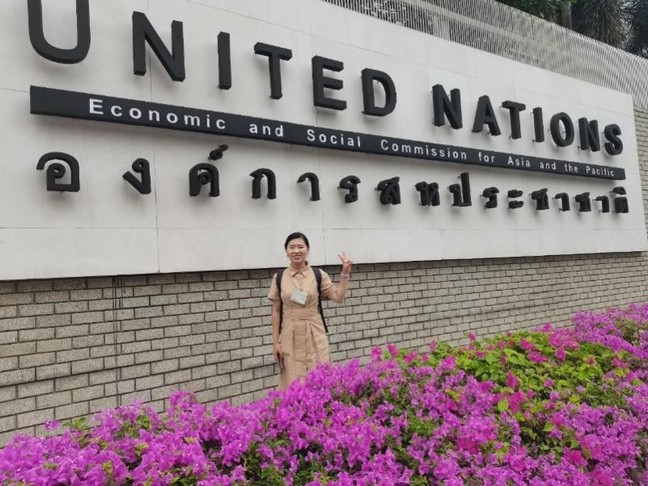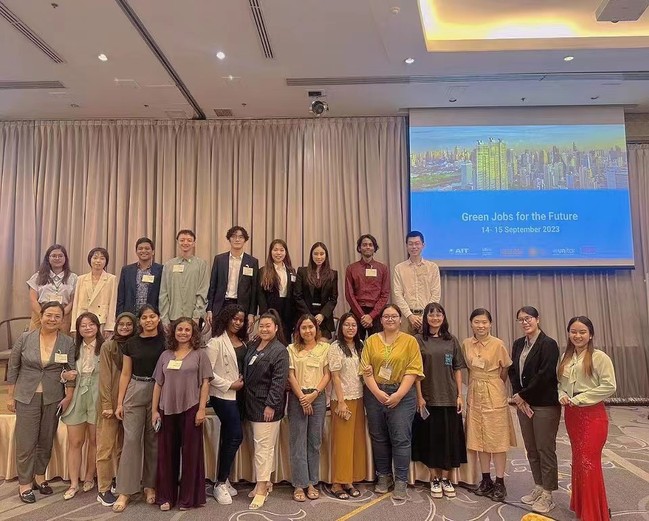Editor’s Note:
During the 2021-2023 school years, 13 students from SIGS had opportunities to work with 10 UN organizations through participation in conferences, internships, or projects.
During these experiences, our students not only get the chance to gain global competence but also contribute to the Sustainable Development Goals (SDGs).
In this installation of our SIGSers Go Global Series, Hu Jiahui shares her experiences bringing her environment-related technical expertise to global governance work.

Hu Jiahui
“As a PhD student in Environmental Science and Engineering, my research is focused on clean water technologies, aligning with the United Nations Sustainable Development Goal 6 – Clean water and sanitation,“ said SIGS student Hu Jiahui.
Interested in bringing her technical expertise to global governance, Jiahui took part in the United Nations University (Macau) Global Governance Talent Project, part of a career competency project sponsored by SIGS, from April to May of this year. There, she took on the role of team leader for the project titled China's Circular Carbon andEnvironmental, Social, and Governance (ESG) Indicator System. Her team’s hard work paid off, and the team was honored with the prestigious Best Team Award in the project.
Jiahui’s work with the Global Governance Talent Project received the attention of UN staff and she was invited to lead the Chinese youth delegation to the UN seminar on Green Jobs for the Future, organized by the Asian Institute of Technology (AIT) and the UN Environment Programme (UNEP) in Bangkok, Thailand.

Hu Jiahui (front row, third from right) poses for a photo with other seminar participants
At the workshop, she also had the opportunity to present Circular Transformation through Clean Technologies, sharing the results of her UN University (Macau) Global Governance Talent Project.
In her presentation, she highlighted the efforts of young Chinese students in the circular economy, such as the establishment of the Student Carbon Neutral Research Association at Tsinghua University which engages in national public welfare initiatives related to dual-carbon national goals and implementing practical measures. Additionally, she took the opportunity to call on various stakeholders such as schools, governments, and businesses to collaborate in providing more platforms for young people to engage in the circular economy and acquire green skills.
“The experience of participating in these activities has been instrumental in broadening my research horizons. This experience has encouraged me to contemplate how to address global environmental challenges through the lenses of policy, economics, society, and international collaboration,” reflected Jiahui. “It also enriched my understanding of potential career paths and expanded my network by connecting me with individuals from diverse backgrounds.”
Moving forward, Jiahui can approach her research in clean water technologies from more diverse perspectives.
Written by Alena Shish
Edited by Yuan Yang


